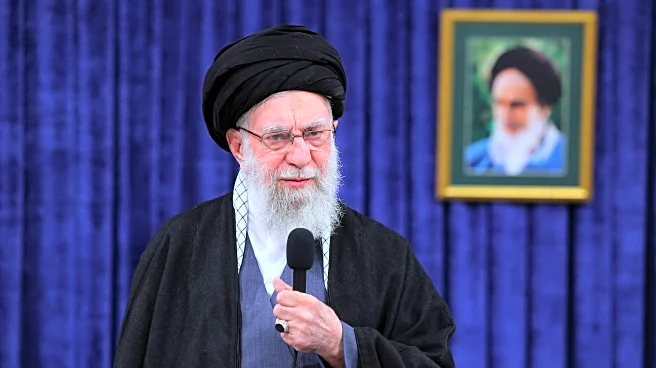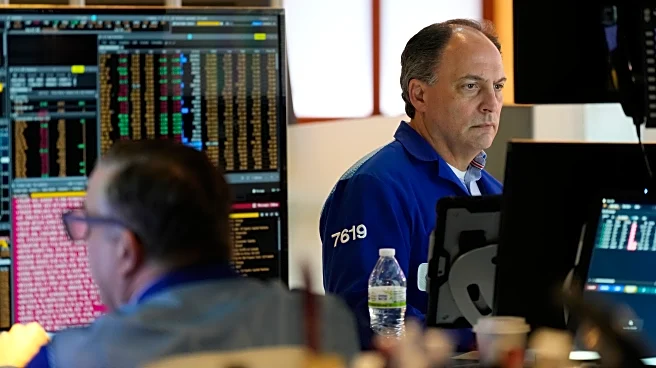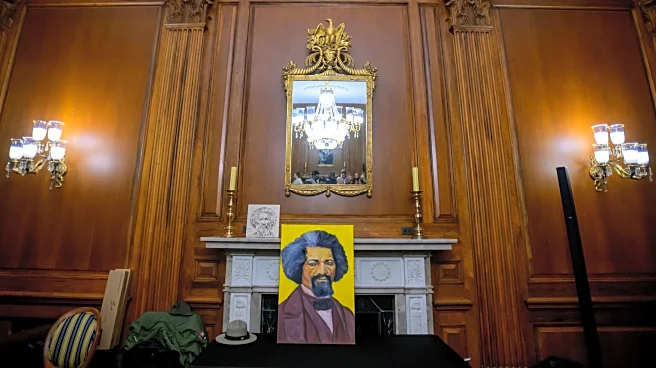What's Happening?
European Commission President Ursula von der Leyen has defended the European Union's trade agreement with President Trump, emphasizing its importance in preventing a potential trade war between the EU and the U.S. In an op-ed published in El Mundo, von der Leyen argued that failing to reach an agreement would have benefited rivals such as Moscow and Beijing. The trade accord establishes a single tariff ceiling of 15 percent, which von der Leyen highlighted as a unique outcome compared to the layered rates Washington applies to other partners. The agreement, finalized last week, is presented as a choice for stability and predictability over escalation and confrontation.
Why It's Important?
The trade agreement between the EU and the U.S. is significant as it aims to prevent economic tensions that could lead to a trade war, which would have broader implications for global markets. By securing a single tariff ceiling, the EU seeks to maintain stable trade relations with the U.S., potentially benefiting industries and consumers on both sides. The deal also reflects strategic considerations in the geopolitical landscape, where maintaining strong economic ties between democratic economies is seen as a counterbalance to the influence of countries like Russia and China. The agreement could impact various sectors, including manufacturing and agriculture, by providing a more predictable trading environment.
What's Next?
The implementation of the trade agreement will likely involve monitoring its impact on EU-U.S. trade relations and assessing its effectiveness in maintaining economic stability. Stakeholders, including businesses and policymakers, will be watching closely to see how the agreement influences trade flows and whether it successfully mitigates potential conflicts. Additionally, there may be ongoing discussions and negotiations to address any emerging issues or to further refine the terms of the agreement. The EU and U.S. may also explore additional areas of cooperation to strengthen their economic partnership.
Beyond the Headlines
The trade accord may have deeper implications for international trade norms and the role of tariffs in global economic policy. By opting for a single tariff ceiling, the EU sets a precedent that could influence future trade negotiations with other partners. The agreement also highlights the importance of diplomatic engagement in resolving trade disputes and underscores the interconnectedness of global economies. Furthermore, the deal may prompt discussions on the balance between protectionism and free trade, as countries navigate complex economic and political landscapes.










